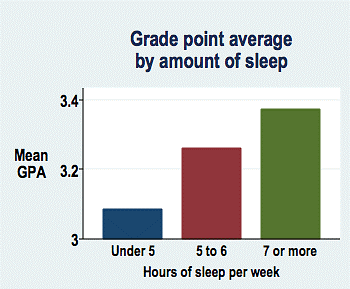Going to Back to School? Get Your Sleep!
By On
Are You a Leader Seeking Advancement in Your Career Through Additional Education?
Many emerging leaders going back to school. Statistics show that if you are an adult student, you are not alone. Students over age 35 accounted for 17 percent of all college and graduate students in 2009, and are expected to make up 19 percent of that total by 2020.
Current or emerging leaders may go back to school for several reasons. They may be upgrading skills for a current job or seeking promotion. Others may be obtaining additional licenses or certifications, using time wisely when laid off, or preparing for a career change.
The Unique Challenges Adult Learners Face
Whatever the reason for heading back to class, lack of adequate sleep can be a problem for adult learners. The sad truth is that tired minds can’t learn or retain. In addition, fatigue makes a student more vulnerable to stress and distraction.
After a full day of work, adult students may find it difficult to pay attention in class or online. As a result, they may not completely or accurately take in the information presented. In addition, the readings and assignments may require hours of concentration and focus. Too many adult students stay up late attempting to complete their work for long papers or tests. All of this contributes to going to bed later than they should.
As a result, they may not completely or accurately take in the information presented. In addition, the readings and assignments may require hours of concentration and focus. Too many adult students stay up late attempting to complete their work for long papers or tests. All of this contributes to going to bed later than they should.
Practical Ways Adult Learners Can Stay Sharp and Sleep Well
Here are some ways to develop a routine for sleep and study that will enable you to be an efficient adult student and successfully complete the course:
- Be realistic about the number of courses you take. Some highly motivated adults feel that they should take several courses. They want to get as many credits as possible. However, even those with experience and high intellectual potential may not have enough hours in the day to complete the work, especially with online courses.
- Develop a study routine. Allot a reasonable number of hours, four days a week. Sometimes, the weekend provides the best opportunities to concentrate. If the material you need to learn is in a new field and fairly complex, you may have to break up your study times into smaller, more frequent periods.
- Study when you are most alert and least distracted. If you are tired, rest or take a brief nap, followed by a healthy drink or snack. Prepare yourself for an effective study session. For example, to start, take time to de-stress by putting your head down and taking four deep breaths, followed by a positive visualization of a time when you were very productive. Then say, “Now I’m ready to work for 20 to 30 minutes. During your study time, take brief but frequent breaks. Even a minute of stretching provides an energy boost.
- Be your own coach and manage the learning process. Have a game plan. What grade are you after? Must you earn an A or just complete a course or certification requirement? How much time can you reasonably allot to studying?
- Develop a healthy sleep schedule to avoid sleep problems, sleep deprivation, and unnecessary stress or health problems, so that you can attain your academic goals.
Given the rapid technological and other changes in our society, the need for continued learning is a fact of life. Another fact of life is that adequate sleep is required for academic success. To remain productive as a leader and an adult student, be mindful of your sleep needs and create healthy sleep and study routines.
*******************************
Click Here for Great Resources from Dr. Geri Markel
Dr. Markel Offers Value-Driven Keynotes and Breakouts.
Download Dr. Markel’s Speaker One Sheet: GeriMarkelCorporateOneSheet-Print
Book Dr. Markel to Speak at Your Next Event? Connect Today!
